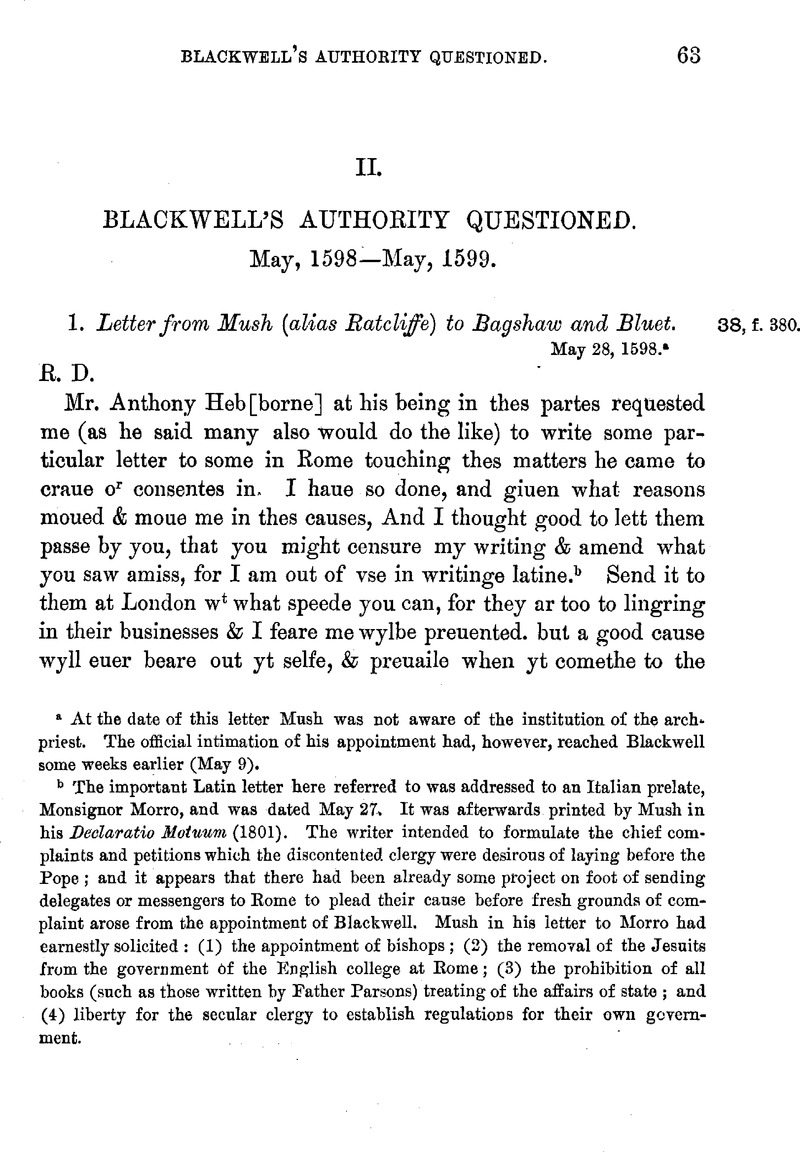No CrossRef data available.
Published online by Cambridge University Press: 24 December 2009

page 63 note a At the date of this letter Mush was not aware of the institution of the archpriest. The official intimation of his appointment had, however, reached Blackwell some weeks earlier (May 9).
page 63 note b The important Latin letter here referred to was addressed to an Italian prelate, Monsignor Morro, and was dated May 27. It was afterwards printed by Mush in his Declaratio Motuum (1801). The writer intended to formulate the chief complaints and petitions which the discontented clergy were desirous of laying before the Pope; and it appears that there had been already some project on foot of sending delegates or messengers to Rome to plead their cause before fresh grounds of complaint arose from the appointment of Blackwell. Mush in his letter to Morro had earnestly solicited: (1) the appointment of bishops; (2) the removal of the Jesuits from the government Of the English college at Rome; (3) the prohibition of all books (such as those written by Father Parsons) treating of the affairs of state; and (4) liberty for the secular clergy to establish regulations for their own government.
To send this article to your Kindle, first ensure no-reply@cambridge.org is added to your Approved Personal Document E-mail List under your Personal Document Settings on the Manage Your Content and Devices page of your Amazon account. Then enter the ‘name’ part of your Kindle email address below. Find out more about sending to your Kindle. Find out more about saving to your Kindle.
Note you can select to save to either the @free.kindle.com or @kindle.com variations. ‘@free.kindle.com’ emails are free but can only be saved to your device when it is connected to wi-fi. ‘@kindle.com’ emails can be delivered even when you are not connected to wi-fi, but note that service fees apply.
Find out more about the Kindle Personal Document Service.
To save this article to your Dropbox account, please select one or more formats and confirm that you agree to abide by our usage policies. If this is the first time you used this feature, you will be asked to authorise Cambridge Core to connect with your Dropbox account. Find out more about saving content to Dropbox.
To save this article to your Google Drive account, please select one or more formats and confirm that you agree to abide by our usage policies. If this is the first time you used this feature, you will be asked to authorise Cambridge Core to connect with your Google Drive account. Find out more about saving content to Google Drive.